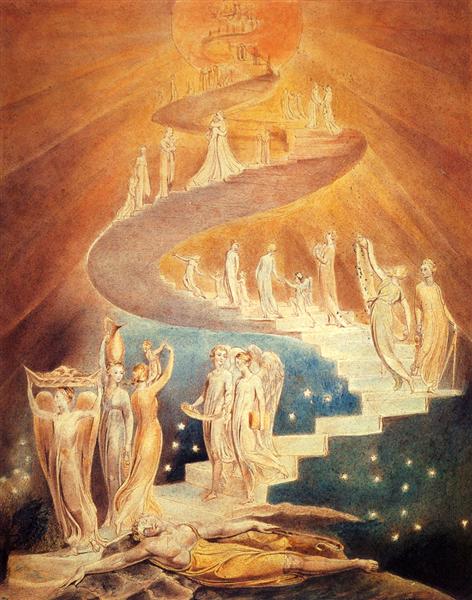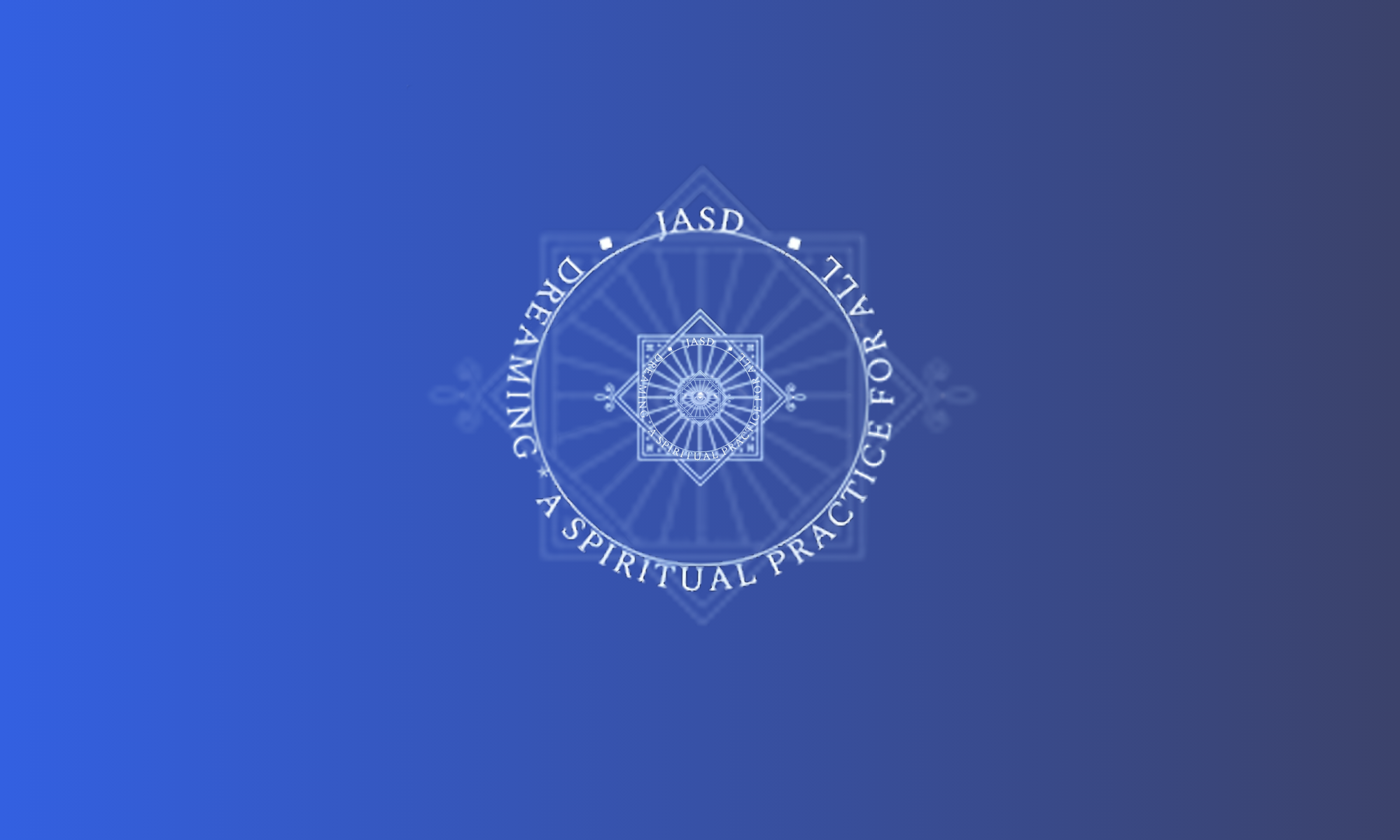
He had a dream; a stairway was set on the ground and its top ascended to the sky and the angels of God were going up and down on it. – Genesis 28:13
Like angels ascending and descending Jacob’s ladder, dreams link heaven and earth, the physical and the cosmic. Dreams, the language of the soul, the voice of the Divine, open a sacred space to connect with God.
Dream allusions fill our prayerbooks, Torah, Talmud, and Kabbalah, but in modern Judaism, dreams are a neglected part of our heritage.
Prayer and deeds of loving kindness are established practices, and meditation is a rediscovered tradition of Jewish spirituality. Yet, our religious institutions have lost appreciation of dreams as an entrance to holiness.
The Talmud, rabbinic teachings of Jewish law, contains a dream manual (Brakhot 55a-57b). The Torah illumines the importance of dreams. Throughout, God appears in dreams and visions to prophets and kings: to Abimelech (king of Gerar) in “a dream of the night,” to Israel “in visions of the night,” to Moses in “a flame of fire out of the midst of a bush.”
In the Torah, Joseph translates Pharaoh’s dreams of plenty and famine, leading to a public policy that saves the Egyptians from starvation. King Nebuchadnezzar suffers the physical and emotional toil of defying the will of God as imparted to him in a dream. God, in dreams, grants King Solomon the gift of wisdom.
Readings in Gates of Prayer: The New Union Prayer Book crystallize facets of dreams:
“I find You in the marvels of Your creative might. In visions in Your Temple/In dreams that bless the night.”
“Grant, O Eternal God, that we may lie down in peace, and raise us up, O Sovereign, to life renewed. Spread over us the shelter of Your peace, guide us with Your good counsel, and for Your name’s sake, be our Help.”
“Trust in God* with all thy heart and lean not unto thine own understanding; in all thy ways acknowledge God and (God) will direct thy paths.”
God, Source, Guide, Presence, Spirit—it matters not what we call the force; it only matters we connect.
Yet, in Judaism today, the guiding, protective, and healing aspects of dreams are forgotten. Prominent Jewish spiritual centers list Torah study and meditation as paths to Jewish wisdom and a relationship with God but omit dreaming as a mystical mode. Sisterhoods sponsor bridge tournaments, Mah Jongg games, and yoga classes, but dream circles are rare.
JASD embraces dream awareness as a fundamental pillar of Jewish spirituality and spiritual practice for all.
SACRED DREAMS IN HISTORY
Dreams are integral to ancient religions. Dreams are found in the holy books of the major monotheistic faiths—Judaism, Christianity, and Islam.
Some assert the supreme writings of the three Abrahamic creeds are literal truths. For me, the Bible and the Qur’an, along with their dream narratives, serve as metaphorical manuals for the growth of the soul and expanded awareness.
The Epic of Gilgamesh, dating back to around 2000 BCE, is possibly the oldest work of literature. Gilgamesh, king of Uruk (modern-day Iraq), part god and part man, dreamt of terrifying times filled with falling mountains, storms, wild bulls, and a fire-breathing thunderbird.
An impending flood, a gliding garden serpent, the beast-like Enkidu, and vivid god-sent dreams read like precursors of the biblical Garden of Eden, Noah’s flood, and Nebuchadnezzar’s madness.
By the fourth century BCE, Babylonians and Assyrians, living along the banks of the Tigris and Euphrates rivers—the region eloquently known as the cradle of civilization—had vanquished fragments of a polytheistic past. In their religious texts, dreams emanated from a singular god.
Dreams in biblical tales occurred in sacred places or the places were sacred because a divine revelation occurred there. Dozens of dreams fill the Old and New Testaments, the holy teachings of Judaism and Christianity.
Angels and trances and voices and spirits and visions—siblings of nighttime dreams—grace nearly every page, delivering God’s guidance and prophecy.
In Numbers, “If there is a prophet among you, I, God, do make Myself known unto him in a vision, I do speak with him in a dream.”
Jacob’s dream, a mystical occurrence beautifully told in Genesis, is an allegory of the two-way communication dreams tender between God and humankind. One night, Jacob, traveling to Haran to find a wife, put a stone under his head and slipped into sleep. Like angels ascending and descending Jacob’s ladder, dreams link heaven and earth, the cosmic and the physical.
In the New Testament, the angel Gabriel visited Mary and divulged she would bear the Son of God: “The Holy Spirit will come upon you, and the power of the Most High will overshadow you.”
After he learned of the pending birth, Joseph thought about deserting Mary, his betrothed, but the “angel of the Lord” came forth in a dream and convinced the reluctant Joseph to wed Mary.
The night Jesus was born in a Bethlehem stable an angel appeared to shepherds in a nearby field. The angel announced the birth of the Messiah and described where to find Him.
After visiting the baby, the Wise Men dreamt King Herod intended to harm Jesus. In three dreams, angels told Joseph how to keep Jesus safe.
A dream birthed another biblical narrative. Around 95 AD, a heavenly figure emerged in a dream to John of Patmos on the Aegean Island where he lived.
The dream directed him to record his visions. Stars and dragons, seals and a leopard-like beast, dense numerology, and apocalyptic scenarios became Revelation.
The final book of the Christian Bible tells the sensational stories of the Four Horsemen and the Second Coming of Christ.
Dreams are also intrinsic to the holy books and teachings of Islam.
Muhammad, a shepherd and merchant, was meditating in a cave near Mecca when the angel Gabriel pronounced in a dream to the future prophet and founder of Islam, “O Muhammad, you are the messenger of Allah.”
From 610 CE, when Muhammad was nearly forty until his death twenty-three years later, the angel in dreams and visions imparted the Qur’an, believed by Muslims to be the word of God.
Dreams foretold the course of the female Muslim saint, Rābia al-Basri. After she was born in Basra, Iraq, in 717, Muhammad appeared to her father in a dream, saying, “Your newly born daughter is a favorite of the Lord, and shall lead many Muslims to the right path.” Al-Basri is credited with founding Sufism, the mystical aspect of Islam. ” -From Dreams and the Wisdom Within by Joyce Lynn
WHY EMBRACE DREAM AWARENESS
Dreams strengthen the spiritual seeker and houses of worship, nurture personal growth, and empower communities. JASD aims to re-instill an appreciation of dreams in synagogue services and in individual and communal Jewish life by teaching about the power of dreams to guide, heal, and transform..
JASD explores the potential for Jewish and faith communities to share dreams and draws upon the positive insights and actions resulting from attending to our dreams.

